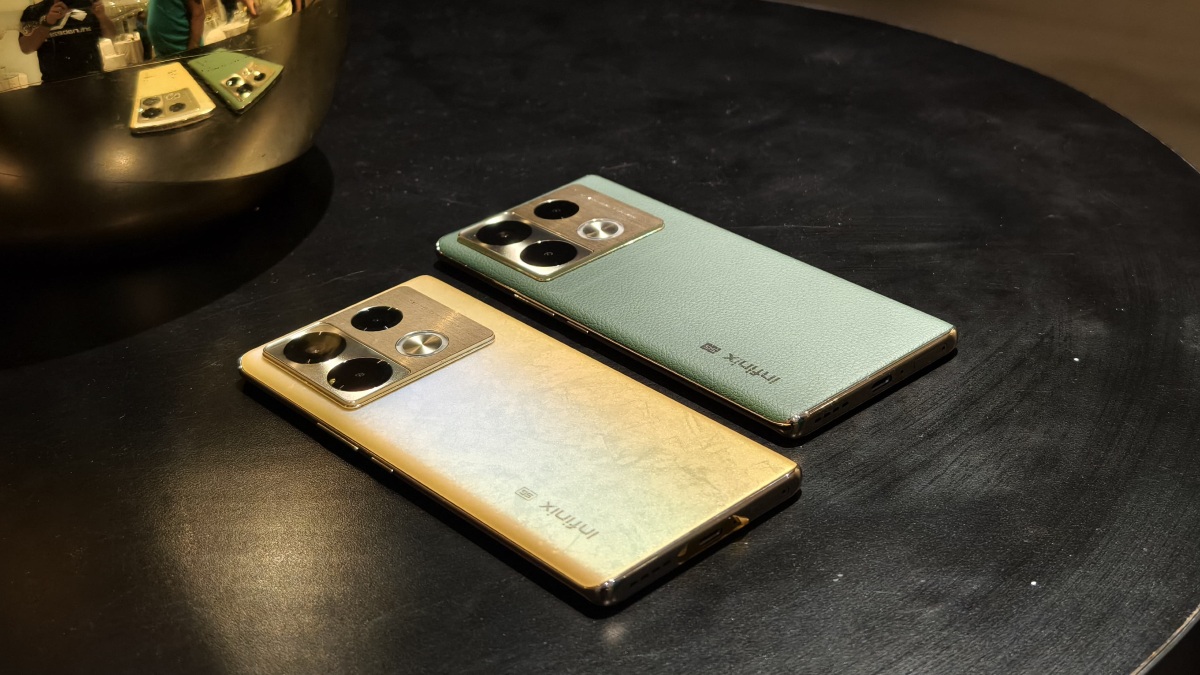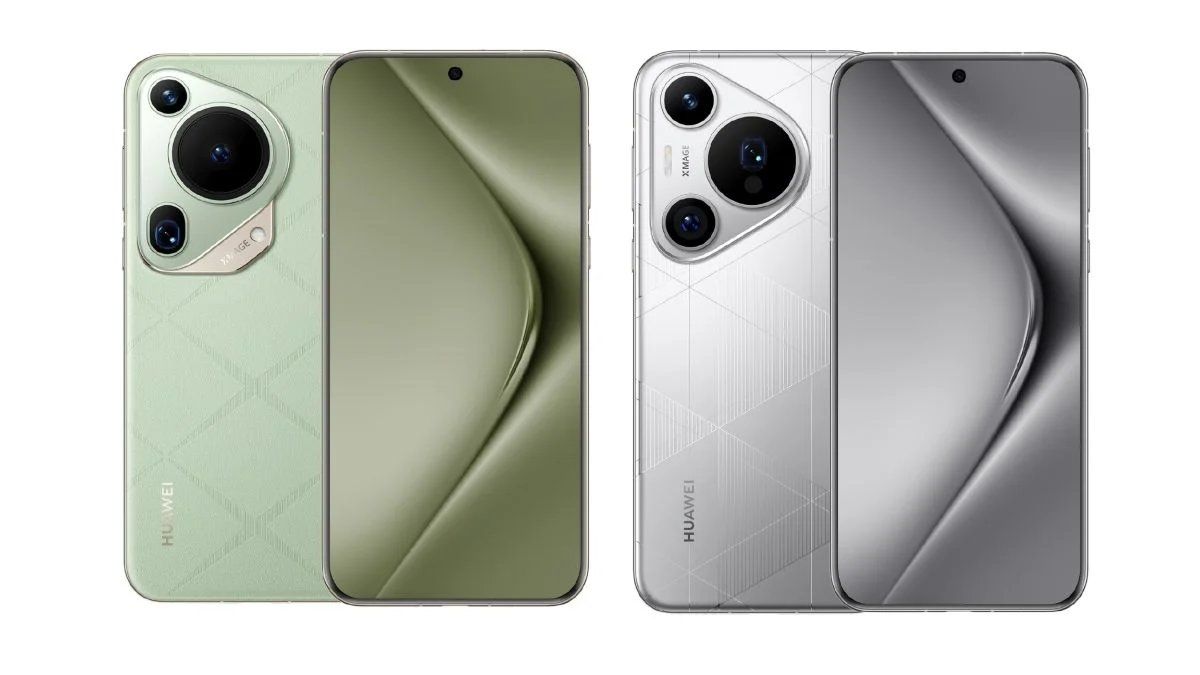Just In
- 7 hrs ago

- 14 hrs ago

- 15 hrs ago

- 1 day ago

Don't Miss
- News
 Ghazipur Landfill Fire: Massive Blaze Erupts At Delhi's Garbage Mountain | WATCH Video
Ghazipur Landfill Fire: Massive Blaze Erupts At Delhi's Garbage Mountain | WATCH Video - Sports
 RCB IPL 2024 Playoff Scenario: Can Royal Challengers Bengaluru Qualify for the Playoffs after KKR Defeat?
RCB IPL 2024 Playoff Scenario: Can Royal Challengers Bengaluru Qualify for the Playoffs after KKR Defeat? - Finance
 Missed Your Voter ID Card? Here Are 10 Alternate Documents You Can Use This Election Season!
Missed Your Voter ID Card? Here Are 10 Alternate Documents You Can Use This Election Season! - Movies
 Love Sex Aur Dhokha 2 Cast Salary: HOW MUCH Was Mouni Roy Paid For Her CAMEO In LSD 2? GUESS The FEE -
Love Sex Aur Dhokha 2 Cast Salary: HOW MUCH Was Mouni Roy Paid For Her CAMEO In LSD 2? GUESS The FEE - - Lifestyle
 World Earth Day 2024 Wishes, Greetings, Images, Twitter Status And Instagram Captions
World Earth Day 2024 Wishes, Greetings, Images, Twitter Status And Instagram Captions - Automobiles
 Ensuring Car Fitness Ahead Of A Road Trip: Top Tips & Tricks You Need To Know
Ensuring Car Fitness Ahead Of A Road Trip: Top Tips & Tricks You Need To Know - Education
 Assam Class 10 Result 2024 Declared: Anurag Emerged as the Top Performer With 593 Marks
Assam Class 10 Result 2024 Declared: Anurag Emerged as the Top Performer With 593 Marks - Travel
 Journey From Delhi To Ooty: Top Transport Options And Attractions
Journey From Delhi To Ooty: Top Transport Options And Attractions
Biggest controversies that shook tech industry in 2018
Here are the biggest and most shocking incidents that happened in the tech industry
This year has been a reckoning of sorts. Long going sexual misconduct in the industry were exposed this year. Industry majors like Facebook and Google were accused of playing a key role in swaying the 2016 election results. Apple admitted slowing down old iPhones to pave way for the new models, and what not.

This year was no short of scandals in the tech world. What follows are the biggest controversies of 2018 that shook the technology world:

Facebook seemed like an unstoppable force with its skyrocketing growth in stock prices, and unparalleled success in the social media space. But the social media goliath found itself in the midst of a controversy.
Facebook was accused of allowing Cambridge Analytica, a London-based political consulting firm, to harvest user data from its platform. The consulting firm used close to 50 million users' data, but the number later surged to 87 million accounts.
Well, after being in the spotlight for months for its participation in Donald Trump's 2016 presidential campaign, Cambridge Analytica and its parent company SLC Group were shut down.
The severe outcry following the controversy forced the CEO Mark Zuckerberg undergoing intense questioning before the US Senate. This also affected the company's financial goals. In July, Facebook announced a sluggish growth than expected, while the stock prices saw a huge decline costing up to $120 billion its market value.

Google was recently accused of showing biased search results against conservative points of view. In a hearing titled "Transparency & Accountability: Examining Google and its Data Collection, Use, and Filtering Practices," CEO Sundar Pichai testified before the House Judiciary Committee.
The narrative has been much talked over the past year, as Republican lawmakers - and even President Donald Trump have questioned Google and other search engines of subduing conservative voices. Pichai repeatedly stressed that Google's algorithm doesn't favor any such ideology, but instead focuses on the relevant results, which could be affected depending on the user's location or other factors.
Claiming up to 90 percent of the market share, Google is the most used search engine across the globe, but the algorithm that provides the search results are complex and opaque. Many of its contemporaries have accused the search giant of pushing its own services, like maps, jobs postings, business reviews and travel information above other links and websites. In 2017, the company was fined $2.7 billion by EU over antitrust issues for its shopping results.

Apple
Apple faced a ton of criticism from its users when it was found out that changes were made to iOS in order to slow down the performance of the older iPhones as their batteries degrade beyond a specific point.
Termed as "throttling," the iPhone maker practiced it throughout 2017. CEO Tim Cook tried defending the use of throttling to keep the batteries efficient, but later admitted that it was a mistake not being transparent about its actions. That wasn't enough to curb the critics, as the practice was seen as a way to force users into upgrading to the latest models of the iPhone.
The controversy seems to have affected Apple's reputation and the trust of its loyal user base. Besides, there have been reports that the company is still under investigation whether it has violated any security laws while practicing mobile throttling.

Huawei
Huawei, which is known for its networking equipment and smartphones, was poised at expanding its reach to the US. But, the company took a major blow when these plans came to a halt due to international political concerns.
Back in January, the company was expected to announce that major mobile carriers in the US like AT&T and Verizon Wireless would power its flagship Mate 10 smartphones in the market. But the tie-up never came to fruition as the telecom companies reportedly backing out due to concerns raised by the US government agencies regarding Huawei's relation with the Chinese authorities.

Broadcomm-Qualcomm
In November 2017, Broadcomm offered $117 billion to acquire communications chip manufacturer Qualcomm. Initially, Qualcomm rejected the offer, but later in January 2018, both companies were reportedly in talks again.
But, Broadcomm's offer was caught in a trap after Donald Trump's US-first trade policies and what seemed like a normal takeover became a political issue. This was followed by a national security review of Broadcomm.
Later, Trump ordered to halt the deal citing national security concerns, saying it would give China a lead in the mobile technology over the US. As a result, Broadcomm also had to abandon its plans of acquiring Qualcomm.

ZTE
Chinese firm ZTE also fell prey to the political and economic battle between the US and China. In April this year, US Department of Commerce announced that ZTE has failed violated the US embargo by providing its services in Iran.
The US then banned the sales of US-made components to ZTE such as the Qualcomm processors for ZTE phones. this led to ZTE shutting all its operations in the US. But, surprisingly President Donald Trump tweeted about bringing ZTE back in business.
The move was seen as an effort to rebuild the trading relationship between the two countries by some, while others criticized it of being a weak move for the POTUS. Finally, in June ZTE was asked to pay $1.4 billion fine and make alterations to its executive team in order to continue operations on the US soil.

Intel
Intel's 2018 kickoff wouldn't be a one to cherish as it faced major issues in the form of two big processor vulnerabilities that were known as Spectre and Meltdown. Initially, the company called the reports inaccurate, ignoring their severity.
But later the company confirmed that the Meltdown and Spectre flaws are slowing the performance of its devices. However, the company also claimed that average users would not be affected. The vulnerabilities were believed to spread across multiple generations of microprocessors used by numerous servers, laptops, smartphones, and others.
The company, as a result, had to launch a threat mitigation program that comprised of an operating system and firmware updates to rectify the vulnerabilities.
-
1,29,999
-
22,999
-
64,999
-
99,999
-
29,999
-
39,999
-
-
63,999
-
1,56,900
-
96,949
-
1,39,900
-
1,29,900
-
79,900
-
65,900
-
12,999
-
96,949
-
16,499
-
38,999
-
30,700
-
49,999
-
19,999
-
17,970
-
21,999
-
13,474
-
18,999
-
22,999
-
19,999
-
17,999
-
26,999
-
5,999












































